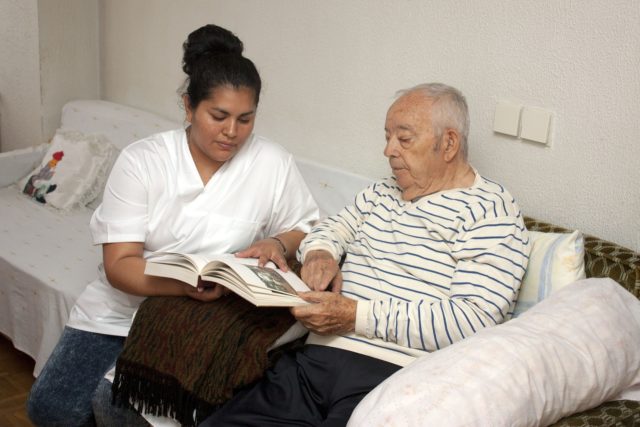
Once people hit the age of 65, long term care and all that comes with it suddenly shift to becoming a top priority. Questions, such as “Who will care for me when I’m older?”, “How much does long term care cost in this country?”, or “Will I still be able to live in my own house?”, enter your mind and tend to stay there longer than it did before.
The truth is that one-third of individuals age 40 and older have done no planning at all when it comes to their own future long term care needs. When 7 out of 10 of us will most likely require long term care services after turning 65, having a set plan in place is even more vital than most people realize.
However, there are proactive individuals who use their youth to their advantage and begin planning for their long term care decades before they might need it. Granted that the plan they and their advisors came up with holds, these people get to experience retirement and aging with less worry and stress than those who do not.
So for those who have not started or those who have not completed this part of the plan, let us help you cross one item of your list: deciding where you want to receive the care and from whom you want to get it.
Yes, older individuals are prone to illnesses that might require specialized care that they can only find in facilities. But for those who get the privilege of staying in the comforts of their own homes, you can choose to receive care from a caregiver. Here are some great choices that you might want to start considering now:
Family Caregiver
Family caregivers are admirable individuals who look at the task as rewarding. Many jump at the task to care for their elderly loved ones as an act of love for their family.
While it is very likely that your loved one will be willing to take care of you, bear in mind that caregiving requires a considerable amount of time and strength. Yes, the willingness is there, but if you impose this task on your spouse or your children, they might need to give up important aspects of their lives such as their career. If that happens, financial impairment on their end will likely follow suit.
Before you entrust your care requirements on a loved one, consider the extent of the sacrifice he or she has to make. How much care will you need exactly and what does this entail for your family member? Will it take away so much time from his or her personal life or does it only involve small tasks such as driving to the store and performing some household choices? If your family caregiver cannot handle the task on his or her own, consider other care options that you can take when he or she is unavailable. You can consider respite care and adult day care centers to provide the care you need while your loved one is attending to his or her job or other important activities.
Finances are a major concern for family caregivers. After all, the care they render is usually unpaid. If they have to give up their jobs, that would mean a major decline in their income. If you want a family member to care for you, then providing compensation might be a great way to ease their burden and the guilt that you might feel in the process.
In some states, Medicaid has a Cash and Counseling Program that provides monetary benefits which people can use to pay for care. More so, some long term care insurance policies can pay for in-home care administered by a family member. If you have a policy, check if this is included in your coverage. If you are in the process of buying long term care insurance and you would want a family caregiver to attend to you, then check if this option is available.
Paid Caregiver
Another option that many individuals choose is to employ a caregiver. As you are employing the services of someone outside you family, you must ensure that you get the best quality of care by hiring a person who is reliable and knowledgeable in the field of giving care.
You can hire paid caregivers independently or with the help of an agency. Hiring independently gives you the liberty to choose the person you think is the best match to your requirements. More so, hiring directly costs less as opposed to going to an agency. However, if your caregiver gets sick or injured, finding a replacement can be hard.
Agencies, on the other hand, are responsible for screening and hiring the caregivers. All you have to do is inform them of your requirements, and then they will be in charge of finding a caregiver that best matches your needs. Should the caregiver become unavailable, the burden of finding a replacement will be on the agency. However, going this route can be more expensive. Additionally, it gives you a limited say on which person to hire.
The best choice between the two is highly dependent on your needs and your current situation. Go for the one that will work best for your interest, as well as for the other essential areas of your life such as your finances and family.
Which Option Are You Inclined To Take?
Different people have varying needs and options, but it will not hurt to hear how other people are going about this challenge. Paid or family caregiver—which option would you take? And what was the reason behind this decision? Share your experiences in the comment section below.
